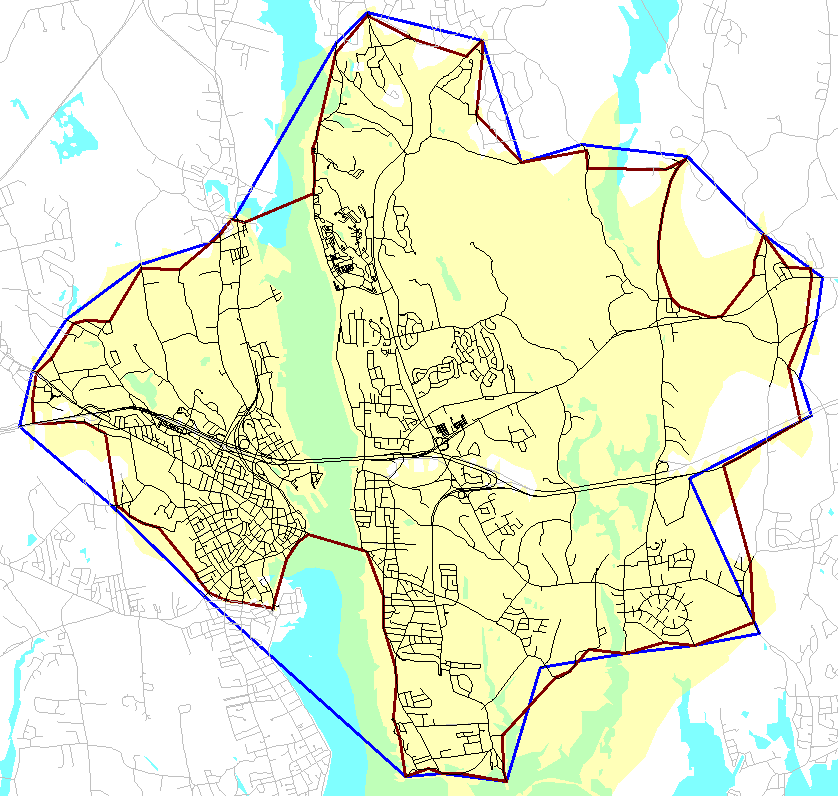Generating nice-looking isochrones has always been a key functionality of routing software and RW Net 4 offers several methods, which are shown below.
As you will see, generating the same N km isochrone with different methods do not give the exact same output.
That is also why we generally do not recommend using the isochrones for point-in-polygon analysis as a way of finding out which customers are less then N km away.
Rather use the various matrix functions for finding distance between multiple points. This also allows you to include the off-road part in the calculations.
This table gives an overview of the key differences between the methods:
Input |
1 location |
nodes & locations |
1 location |
nodes |
nodes & locations |
TPolyGeneration input |
|
Yes |
|
|
Yes |
Speed of calculations |
36 ms |
47 ms |
78 ms |
109 ms |
125 ms |
Holes |
|
Yes |
|
|
|
Islands |
|
Yes |
|
|
Yes |
Doughnut mode |
Yes |
Yes |
|
|
|
Smoothing |
Yes |
Yes |
|
|
|
|
|
|
|
|
|
Shown on map as: |
Blue line |
Yellow polygon |
(not shown) |
Black network |
Brown line |
Alpha shapes and DriveTimeSimpleDyn both tries to follow the perimeter of the network, which can be reached from the starting point(s).
They do not take into consideration any unreachable parts of the network (the grey lines), so they may get included in the output polygon anyway.
Voronoi on the other hand follows the line between what can be reached (black network) and what can not be reached (grey network).
Alpha shapes can not be calculated in doughnut mode, since 2 polygons may actually be intersecting, due to the way they are calculated.
IsoLinkDriveTime(Dyn) is the most accurate, so for comparison it is included. But it is a much different kind of output.
Timings above are for the 7 km isochrones shown below with addnodes = 0.3 km:
NOTE: Has not been updated, after the performance improvements in version 4.30.
